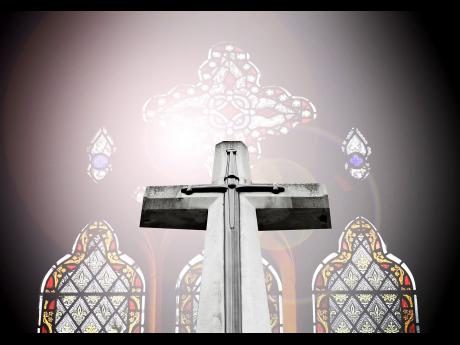Religion & Culture | Christmas & Christians - Responding to the minority who refuse to be merry
By now, everyone must have heard of Christmas' pagan roots. Esoterically connected to the winter solstice was the week-long festival of Saturnalia celebrated on December 17 that paid homage to the god Saturn. Another Roman holiday, Sol Invictus, was marked on December 25 to usher in the Unconquerable Sun.
Both festivities were known for excessive revelry, merriment and generosity.
Another related festivity was Germanic and Scandinavian in origin and was called Yule, in honour of the god Odin. Celebrated between mid-November and mid-January, it was also a time of exhaustive gaiety. By the fourth century, these holidays were absorbed into Christendom.
In Christmas isn't Christian: The Pagan Roots of the Winter Holiday, Laurel Dickman states that modern witches have continued the pagan tradition celebrating the Yuletide at covens and in their homes.
"In most forms of Wicca," she pens, "it's celebrated at winter solstice as the rebirth of the Greta, the horned hunter god who is viewed as the newborn solstice sun."
Equating paganism with Satanism, some Christian groups, such as Jehovah's Witnesses, have disallowed their members from celebrating Christmas, going so far as referring to the holiday as satanic.
Of Christmas, Jehovah's Witnesses warn:
"Virtually every facet of Christmas is either pagan in origin or a distortion of the Bible accounts (the three wise men, Santa Claus, Jesus' date of birth, merriment and gift giving). Centuries after the death of Christ, many false teachers arose, just as the Bible had foretold. Those unprincipled men were more interested in making Christianity fashionable to the pagan masses, hence, they gradually adopted pagan religious festivals and labelled them 'Christian'. But the destruction of [falsehood is assured]."
But paganism has just about seeped into every nook and cranny of Western lore. Case in point: the days of the week - 'Thursday' originally stood for the Germanic god of the sky or of thunder. 'Tuesday' stood for Tiw, the god of war. And 'Wednesday, is derived from Woden, the chief god in Germanic mythology.
Sunday and Monday were related somehow to the worship of the sun and the moon. 'Saturday' is from Saturnus, or Saturn, and 'Friday, comes from Fria, the goddess of love."
Are Jehovah's Witnesses going to reject the names ascribed to the days of the week, all named after pagan gods?
If these Christian groups seek a total disengagement of all things pagan, lest they be condemned to everlasting damnation, they are well-advised to re-examine their sacred texts.
What they fail to realise is that every living religion has been impacted by acculturation.
FUSED CULTURES
No religion emerged out of a vacuum. Migration of peoples to new lands for trading, conquest, or existential reasons has led to cultural absorption and the slow modifications of mores, values and beliefs. Acculturation is a living, breathing phenomenon. This is reflected in the very structure of words (etymology), language, foods, dress and traditions.
This takes place over generations, a seamless and systemic fusing of cultures. It is no coincidence that the Koran (Islamic text) is replete with Judeo-Christian mythologies.
It is no coincidence that the Bible is replete with Egyptian mythologies. And it is no coincidence that Jesus' defining attributes and feats bear similarities with those of the many saviours in pagan scriptures, as Kersey Graves' The World's Sixteen Crucified Saviours, has proved.
For sure, it is no secret that the Mosaic commandments were lifted from the Confessions of Maat (The 42 Declarations of Innocence), Yes, the Ten commandments were inscribed on the walls of the Temple of Unas (2376 BC) long before the birth of Moses (1325 BC), who just happened to be an Egyptian.
These facts are incontrovertibly well-researched and documented by the brightest minds in archaeology and linguistics
Such is the absurdity of embracing any religion or culture as pure and unadulterated.
If the elders of the Jehovah's Witnesses and other rejectionists are genuinely interested in educating themselves and their flock, they should begin with the seminal works of the late Josef Ben-Jochannan: The Myth of Genesis and Exodus and their exclusion of their African Origins, African Origins of Major Western Religions, and A Chronology to the Bible: A Challenge to its Standard Version.
Acculturation is alive and dynamic even in contemporary society. for example, Hanukkah, a Jewish celebration during the Christmas season, has taken on certain properties of the Christian holiday, and Kwanza, although having African roots, is celebrated around the Christmas season and bears some of its affinities.
And with that, I wish you a merry Christmas, West Indian style - a truly acculturated experience if ever there was one.
- Dr Glenville Ashby is the award-winning author of 'Anam Cara: Your Soul Friend' and 'Bridge to Enlightenment and Creativity'. Feedback: glenvilleashby@gmail.com. follow him on Twitter @glenvilleashby.



